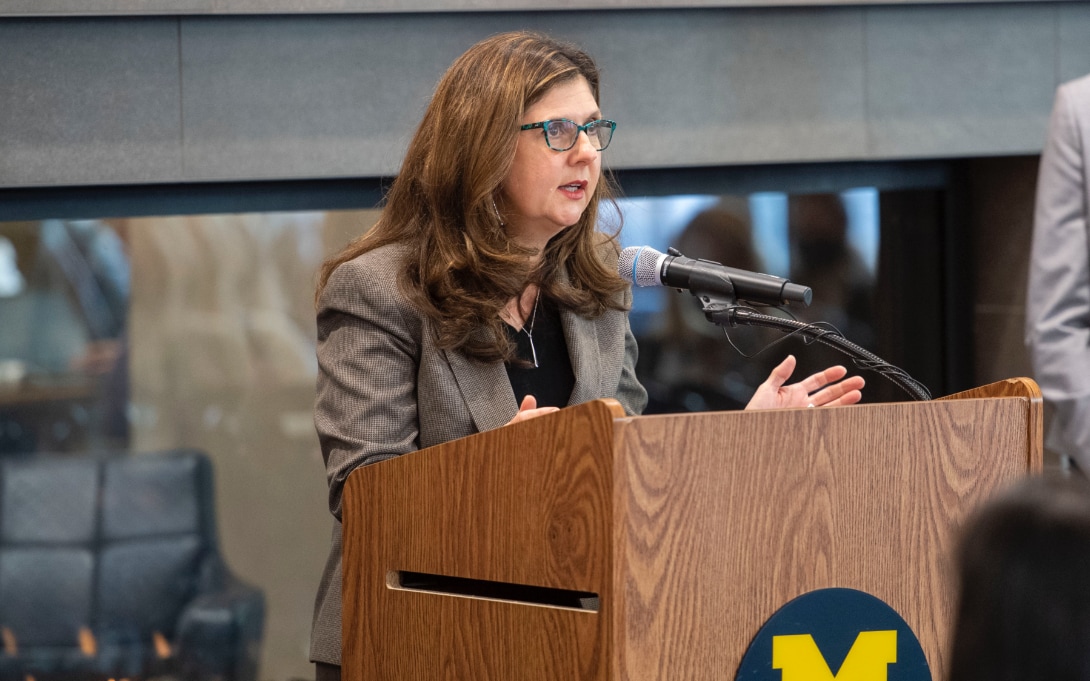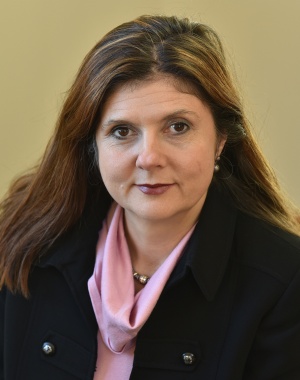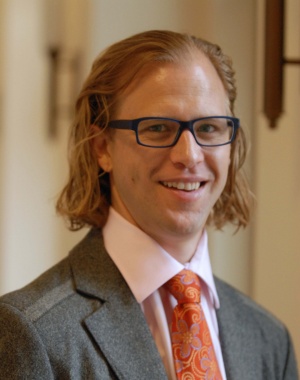
Betsey Stevenson uses the tools of her trade to empower people and improve lives
By Daniel Rivkin
An early March ice storm in Michigan caused widespread power outages and disruptions for hundreds of thousands of households. Families had to relocate to hotels, or lost their food, or incurred damage to their houses, while some businesses—hotels, restaurants or repair companies—profited. For Ford School economist Betsey Stevenson, the storm was an opportunity to explain to her children the trade-offs and opportunities implicit in economics.
"When you look at economics, everybody has some interactions with it, and of course people make economic decisions every day. So the tagline of our textbook is, 'Every decision is an economic decision.' And I have this conversation with my kids because I want to make sure they always understand that everything has a cost," Stevenson explains.
The textbooks, Principles of Microeconomics and Principles of Macroeconomics, co-written with partner and fellow economics professor Justin Wolfers, are one way through which she makes the topic relevant. Stevenson is a prolific public academic. She and Wolfers have produced a podcast called "Think Like an Economist"; she is a regular guest on NPR, CNBC, Bloomberg, and other media outlets; and she provides testimony to Congressional committees. She served as chief economist at the Department of Labor for the Obama Administration and as a member of Obama's Council of Economic Advisers.
She recalls a student group asking her about the differences among her policy engagements, public commentary, and research. "And I said, 'Well, they feel like they're three different things, but to me they're all coming from the same motivation.' The idea is to use the tools of economics to help everybody live a better life," Stevenson says. "I can try to inform what might be policy or outcomes or, in my research, I can look for causal impacts. But if I just write the paper, I've stopped too early from actually having an effect in the world."
For the multiplicity of her activity, she was awarded the 2022 U-M President's Award for National and State Leadership, recognizing her "demonstrated commitment to public service, contributions to significantly impact society, and efforts to address the challenges communities face every day."
Is economics indeed "the dismal science"? Stevenson says no. "I think economics is actually a very optimistic field in a lot of different ways. One big idea in economics is comparative advantage. It doesn't matter whether you're the best at something; that's what economists will call absolute advantage. What really matters is our comparative advantage: what we do best relative to the other things we could do and what everybody else is doing out there in the world. It's a very optimistic idea because every single person has a comparative advantage."
I can try to inform what might be policy or outcomes or, in my research, I can look for causal impacts. But if I just write the paper, I've stopped too early from actually having an effect in the world."
Betsey Stevenson
At the end of the day, Stevenson wants people to be in control of their own lives, understanding the world around them, using the tools of economics.
"But this idea that we make decisions in our own lives only works if we're working together in the joint pursuit of a healthy democracy—understanding that the economy isn't magic; it's not a couple of people pulling a string that you can't see. It is something you can understand and you can impact through your own decisions."
It's about a larger mission, she says. "Ultimately, when people feel empowered in their lives, they will feel good about the state of our democracy."
More in State & Hill
Below, find the full, formatted spring 2023 edition of State & Hill. Click here to return to the spring 2023 S&H homepage.

